Double dilemma: US drones and Afghan denouncements
This issue merits scrutiny in the context of two major geo-political factors.
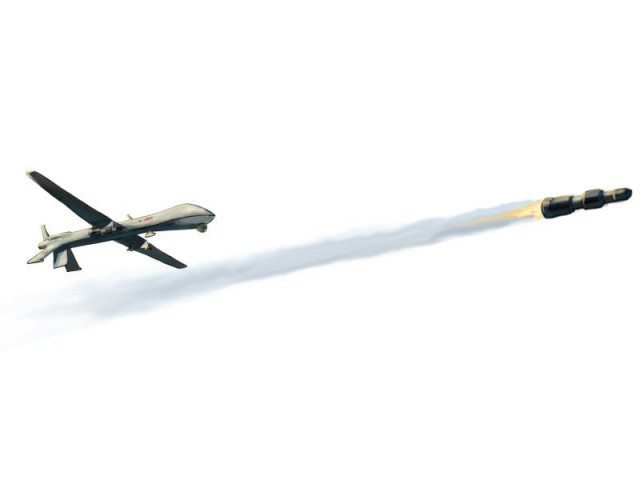
This issue merits scrutiny in the context of two major geo-political factors.
The July 2 drone strike on a target 50 kms off Miranshah -14th this year - evoked another strong protest from the ministry of foreign affairs. This “outrage” came less than four weeks after the Foreign Office summoned US Charge d’ Affaires (CdA), Deputy Ambassador Richard Hoagland, on June 8 to lodge a similar “strong protest” against a strike that had killed seven people in a North Waziristan village.
Do these expressions of rejection and demands for cessation in strikes count? Apparently little because of the US-UK understanding that drones represent an important tool in hunting down terrorists.
This issue merits scrutiny in the context of two major geo-political factors to explain as to why these strikes, though on the wane, are likely to continue
i) The broad US-NATO agreement on the use of drones against common “enemies”,
ii) Increasingly wobbly leadership of a volatile Afghanistan
Speaking in Los Angeles on June 25, UK Foreign Secretary William Hague said about the UK’s policy on intelligence-sharing with the United States: “We operate under the rule of law and are accountable for it.
In some countries secret intelligence is used to control their people. In ours, it only exists to protect their freedoms.”
Allegations that Government Communications Headquarters (GCHQ) used a US programme to circumvent the law and spy on British citizens have led to renewed calls for the agency to disclose what its policy is on providing intelligence to support CIA drone strikes. Anti-drone campaigners claim that by sharing intelligence in support of the campaign, GCHQ may have broken both domestic and international law.
As for Afghanistan, the pressures from across the border are mounting; the Afghan army chief General Sher Mohammad Karimi who, in a BBC interview broadcast July 3, claimed that Pakistan was complicit in drone attacks because Islamabad had “given the lists” of militants it wants taken out. He also alleged that the drones are used against those Taliban who are part of Tehreek-e-Taliban Pakistan (TTP). The drones are never used against Haqqani or Afghan Taliban, he said, in reference to one of the most feared Afghan insurgent groups.
This also meant to run down Pakistani protests as a mere “eyewash for public consumption.”
Gen Karimi’s claim comes two days after Deputy Foreign Minister Ershad Ahmad publicly accused Pakistan of having asked the Afghan government to cede power in some provinces to the Taliban in a power-sharing deal. The idea, Ahmad said, was raised during a recent meeting between Pakistani national security adviser Sartaj Aziz and Afghan ambassador Umer Daudzai in Islamabad.
In both cases Islamabad issued strong rebuttals but this will neither blunt the chorus of allegations from the Afghan leadership nor cause a cessation to the CIA drone strikes which are predicated on, and declared justified, the presence of Al-Qaeda militants in Waziristan. And the US-UK argument runs like this: as long as these “enemies of the West” are nestled in Waziristan we will keep hunting them.
Herein lies Pakistan’s predicament; the Peshawar High Court (PHC) on May 9 declared the CIA’s drone campaign to be a war crime, and ordered the Pakistani government to take steps to put an end to it. Also, almost the same day, families of victims of US drone strikes on Thursday wrote to Prime Minister Sharif, urging him to stop the campaign - by shooting the unmanned aircraft down if necessary.
Even condemnation by the UN chief and criticism by his special envoys such as Ben Emerson matter little when it comes to the deployment of unmanned vehicles for missions in Pakistan, Afghanistan or African countries.
In June, the UN Secretary General described reports of child casualties caused by drones as “increasingly worrisome,” and called on the states involved to conduct “transparent and effective investigations.”
Can the government make similar strong and effective noises to counter the CIA drone campaign? Probably not; it seems currently too focused on how to revive the fledgling economy, which apparently leaves little time to craft a transparent narrative on the drones or conclusively respond to the string of derisive statements out of Kabul. In the absence of a real focus and strategy, external geo-politics is certainly precipitating Pakistan’s internal weaknesses. Only a demonstrable break from the cold-war era reactive foreign policy tactics will convince others that the new leadership means business for the better. Credibility will automatically follow.
Published in The Express Tribune, July 4th, 2013.

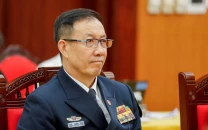


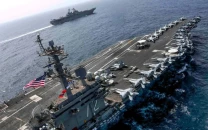
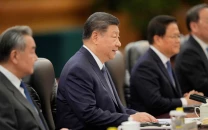
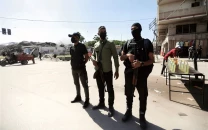











COMMENTS
Comments are moderated and generally will be posted if they are on-topic and not abusive.
For more information, please see our Comments FAQ